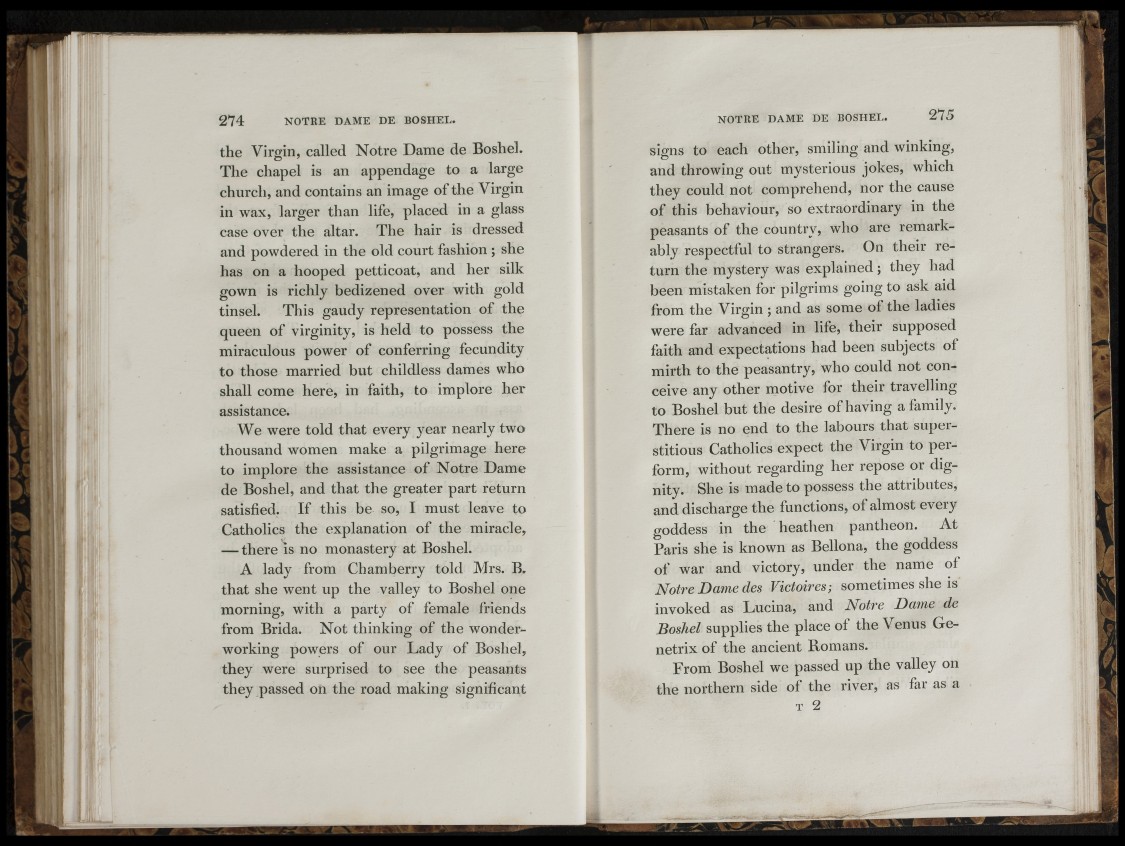
•M...
274 N O T R E D A M E D E B O S H E L . N O T R E D A M E D E B O S H E L . 275
I t . ;
! il :
■ fU'
I. nu
the Virgin, called Notre Dame de Boshel.
The chapel is an appendage to a large
church, and contains an image of the Virgin
in wax, larger than life, placed in a glass
case over the altar. The hair is dressed
and powdered in the old court fashion ; she
has on a hooped petticoat, and her silk
gown is richly bedizened over with gold
tinsel. This gaudy representation of the
queen of virginity, is held to possess the
miraculous power of conferring fecundity
to those married but childless dames who
shall come here, in faith, to implore her
assistance.
We were told that every year nearly two
thousand women make a pilgrimage here
to implore the assistance of Notre Dame
de Boshel, and that the greater part return
satisfied. If this be so, I must leave to
Catholics the explanation of the miracle,
— there is no monastery at Boshel.
A lady from Chamberry told Mrs. B.
that she went up the valley to Boshel one
morning, with a party of female friends
from Brida. Not thinking of the wonderworking
powers of our Lady of Boshel,
they were surprised to see the peasants
they passed on the road making significant
signs to each other, smiling and winking,
and throwing out mysterious jokes, which
they could not comprehend, nor the cause
of this behaviour, so extraordinary in the
peasants of the country, who are remarkably
respectful to strangers. On their return
the mystery was explained; they had
been mistaken for pilgrims going to ask aid
from the Virgin ; and as some of the ladies
were far advanced in life, their supposed
faith and expectations had been subjects of
mirth to the peasantry, who could not conceive
any other motive for their travelling
to Boshel but the desire of having a family.
There is no end to the labours that superstitious
Catholics expect the Virgin to perform,
without regarding her repose or dignity.
She is made to possess the attributes,
and discharge the functions, of almost every
goddess in the heathen pantheon. At
Paris she is known as Bellona, the goddess
of war and victory, under the name of
Notre Dame des Victoires; sometimes she is
invoked as Lucina, and Notre Dame de
Boshel supplies the place of the Venus Ge-
netrix of the ancient Bomans.
From Boshel we passed up the valley on
the northern side of the river, as far as a
T 2
F
m
-m . .«m'TISk'V